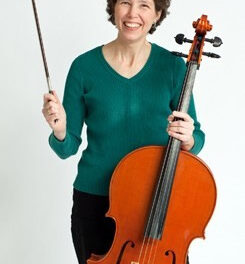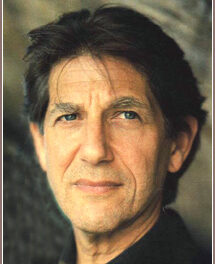In Finale, an intense oedipal drama written and directed by Theatre in the Park’s executive director and resident playwright Ira David Wood III, famous 19th century American Shakespearean actors Edwin Thomas Booth (1833-93) and John Wilkes Booth (1838-65) air all the dirty linen of their famous/infamous family, which one historian dubbed “The Mad Booths of Maryland.” Wood focuses on the fierce sibling rivalry between these two best-known children of the profoundly gifted but hopelessly alcoholic and intermittently insane British tragedian Junius Brutus Booth (1796-1852).
The elder Booth immigrated to America in 1822 and bought a farm near Bel Air, Md. David Wood finds the motive for Lincoln’s assassination in the callous treatment — the stinging paternal indifference — that John received from his itinerant father who (at least) took Edwin with him on his acting tours and left his wife and the younger Booth children in Bel Air to labor sunup to sundown on the farm. John Wilkes Booth may have harbored resentments against his parents (as Wood claims), but there is little doubt Johnny was the favorite Booth child. Mommy and Daddy always loved Johnny best!
Indeed, when Junius Brutus Booth died in 1852, 19-year-old Edwin Booth was a fledgling actor just starting out and broke as Job’s turkey. He tried to borrow his father’s costumes — the same costumes that Edwin unpacks from the battered old trunk that serves as a centerpiece in Finale — but his mother refused him. The elder Booth’s theatrical wardrobe was being held in trust for 14-year-old Johnny, she declared.
Another point where David Wood’s version of Johnny differs from the historical record is Wood’s claim that John Wilkes Booth was essentially apolitical. In reality, Johnny was a Secessionist firebrand who nearly strangled his brother-in-law when John Sleeper Clarke (Asia’s husband) made a crude joke about Confederate President Jefferson Davis.
John Wilkes Booth was a Marylander through and through. In the spring of 1861, when newly elected U.S. President Abraham Lincoln (1809-65) ordered federal troops to occupy the Maryland legislative chambers, rather than let the legislators vote to secede, bitter seeds were planted that bore poisonous fruit on Good Friday of 1865.
(Editor’s Note: Robert McDowell probably has the most complete book and magazine collection on Edwin and John Wilkes Booth in this state. He loaned his Booth library and Lincoln assassination books to David Wood for use as background material during preproduction of Finale, but he had nothing to do with the writing of the script or the production itself.)
Although I question some of David Wood’s historical conclusions, there is no question that the current all-star revival of Finale, starring Eric Carl as Edwin and Will Jayroe as John, is a theatrical night to remember. Carl is superb as Edwin Booth, a successful actor who had serious shortcomings as a husband to lovely actress Mary Devlin (Amy Bossi).
In Finale, when Edwin opens the famous trunk that his brother inherited from their father, he opens a veritable Pandora’s box. The garrulous ghosts of John Wilkes Booth and Junius Brutus Booth appear to repeat choice speeches from Shakespeare’s greatest works and to reprise old personal arguments.
On the night that Finale takes place, Edwin Booth was a troubled man, psychologically wounded. Eric Carl is terrific at guiding Edwin smoothly through the emotional minefield. Will Jayroe, who plays John Wilkes Booth as a hothead’s hothead, sometimes provides too much of a dramatic spark in this somber setting.
Phil Crone’s characterization of the mercurial Junius Brutus Booth is a bit too sane and reasonable, and Sandra Shelton was way too tentative (perhaps, she suffered from opening-night jitters June 13) as Mary Anne Booth, the long-suffering wife of the volatile Junius Brutus Booth.
Amy Bossi was luminous — but given far too little to do and say — as Edwin’s beautiful but brittle wife Mary; and Anna Giles was charming as future family historian Asia Booth Clarke. With his height and his prairie twang, Scott Renz cut a fine figure as Lincoln; and Aaron Dunlap was terrific in is dual roles as Booth Theatre employee Garrie Davidson and a smirking telegram delivery boy.
Scenic and lighting designer Stephen J. Larson and his wife, costume designer Shawn Stewart-Larson, provided a brilliant backdrop for the action and an entire wardrobe of splendid period fashions. Although it may not be entirely historically accurate, Finale is dramatically true. Ailing writer/director David Wood, his stellar cast, and imaginative production staff can be very proud of this first-rate dramatic production mounted under the most difficult of circumstances.
Editor’s Note: Readers may mail get-well cards to David Wood in care of TIP, 107 Pullen Rd., Raleigh, NC 27607.
Theatre in the Park presents Finale Thursday-Saturday, June 19-21 and 26-28, at 8 p.m.; and Sunday, June 22 and 29, at 3 p.m. at TIP, 107 Pullen Rd., Raleigh, North Carolina. (NOTE: TIP will host a Civil War historical reenactment by the 26th Regiment North Carolina Troops (http://www.26nc.org/) from 4 to 6 p.m. June 21.) $18 ($12 students, seniors, and military personnel). 919/831-6058. http://www.theatreinthepark.com/2002-3season/finale/finale.html.












